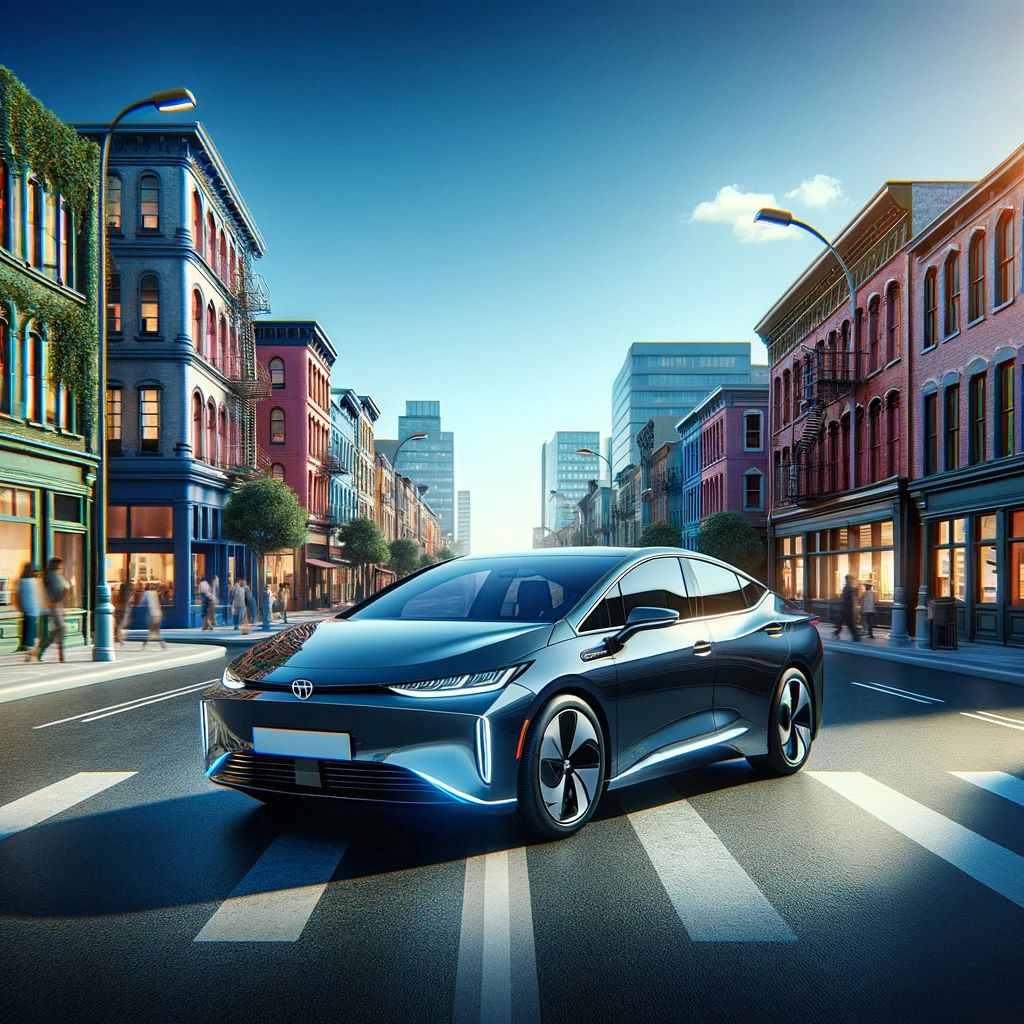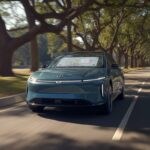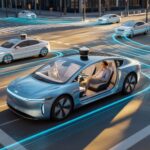
Hybrid vehicles have become increasingly popular over the years as drivers seek more fuel-efficient and environmentally friendly transportation options.
Combining an internal combustion engine with one or more electric motors, hybrid cars offer a middle ground between traditional gasoline vehicles and fully electric vehicles (EVs).
This article will explore the various advantages and disadvantages of hybrid vehicles, providing a comprehensive overview for those considering making the switch.
Advantages of Hybrid Vehicles
1. Improved Fuel Efficiency
One of the most significant benefits of hybrid vehicles is their improved fuel efficiency.
By utilizing both an electric motor and a gasoline engine, hybrids can optimize fuel use better than their gasoline-only counterparts.
The electric motor can power the vehicle at lower speeds, typically in city driving, where stop-and-go traffic is common, saving a considerable amount of gasoline.
This efficiency can lead to significant savings on fuel costs over time.
2. Environmental Benefits
Hybrid vehicles emit fewer pollutants than traditional gasoline vehicles.
The electric motor reduces reliance on the internal combustion engine, leading to lower emissions of harmful gases like carbon dioxide (CO2) and nitrogen oxides (NOx).
This reduction is beneficial for air quality and contributes to the fight against climate change by reducing the vehicle’s carbon footprint.
3. Financial Incentives
Many governments worldwide offer financial incentives to encourage the purchase of hybrid vehicles.
These incentives can include tax credits, rebates, and grants, making hybrids a more economically attractive option for consumers.
Additionally, some regions offer non-monetary benefits such as access to carpool lanes and reduced fees for parking and tolls.
4. Enhanced Performance
Hybrids often provide a more responsive and smoother driving experience compared to their gasoline-only counterparts.
The electric motor can deliver torque instantly, improving acceleration and making the vehicle feel more powerful.
Additionally, regenerative braking systems, which capture energy lost during braking and store it in the battery, contribute to better efficiency and can also enhance braking performance.
5. Reduced Dependence on Fossil Fuels
By incorporating electric power into their operation, hybrid vehicles reduce dependence on oil and contribute to energy diversity.
This shift can help decrease the volatility of fuel prices and reduce the economic and political pressures associated with oil consumption.
6. Wide Range of Options
The hybrid vehicle market has grown significantly, offering a wide range of models to suit various preferences and needs.
From compact cars to SUVs, manufacturers are incorporating hybrid technology across different vehicle segments.
This diversity ensures that potential buyers can find a hybrid vehicle that matches their lifestyle, whether they need a vehicle for city commuting, family travel, or even off-road adventures.
7. Technological Innovation
Hybrid vehicles are often at the forefront of automotive technology, incorporating advanced features that enhance safety, comfort, and connectivity.
These may include adaptive cruise control, lane-keeping assistance, and advanced infotainment systems.
The integration of these technologies not only improves the driving experience but also positions hybrids as future-ready vehicles.
8. Quiet Operation
The electric motor in hybrid vehicles operates quietly, especially at low speeds or when idling.
This quiet operation contributes to a more pleasant driving experience and reduces noise pollution in urban environments.
The tranquility of driving a hybrid can be particularly appealing in congested city traffic.
9. Increased Resale Value
Due to their popularity, fuel efficiency, and perceived environmental benefits, hybrid vehicles often retain their value better than their gasoline-only counterparts.
This higher resale value can make hybrids a more attractive investment in the long term, offsetting the higher initial purchase price.
Disadvantages of Hybrid Vehicles
1. Higher Initial Cost
Hybrid vehicles typically come with a higher price tag compared to their gasoline-only counterparts.
The advanced technology, including the electric motor, battery pack, and complex dual drivetrain system, contributes to the higher cost.
Although fuel savings and government incentives can offset this initial investment over time, the upfront cost can be a significant barrier for some buyers.
2. Battery Replacement and Disposal
The batteries used in hybrid vehicles, usually lithium-ion or nickel-metal hydride, have a limited lifespan and will eventually need replacement.
Battery replacement can be expensive, and the environmental impact of disposing of old batteries is a concern.
Recycling programs and advances in battery technology are helping to address these issues, but they remain a disadvantage of hybrid ownership.
3. Potentially Higher Maintenance Costs
While hybrid vehicles can have lower routine maintenance costs due to less wear and tear on the engine and braking system, they can be more expensive to repair when something goes wrong.
The complexity of hybrid systems requires specialized knowledge and equipment, which can lead to higher labor costs and more expensive parts.
4. Limited Model Selection
Although the selection of hybrid vehicles has expanded significantly in recent years, it remains more limited compared to gasoline vehicles.
Consumers looking for specific types of vehicles, such as certain sports cars or heavy-duty trucks, may find their options limited in the hybrid market.
5. Performance Perceptions
While hybrids offer improved acceleration and responsive performance due to their electric motors, some driving enthusiasts believe that hybrids cannot match the performance of traditional gasoline vehicles, especially in terms of handling and driving dynamics.
This perception, though increasingly outdated as hybrid technology advances, can still deter some potential buyers.
6. Complexity and Weight
The dual drivetrain of hybrid vehicles adds complexity and weight.
This additional weight can affect handling and performance, particularly in models not specifically designed to accommodate the extra mass of the battery pack and electric motor.
The complexity of the system can also intimidate potential buyers who are concerned about long-term reliability and reparability.
7. Limited Electric-Only Range
Most traditional hybrids (non-plug-in hybrids) have a limited electric-only driving range, relying on the gasoline engine for longer trips.
For buyers looking to maximize their time driving on electric power alone, a plug-in hybrid electric vehicle (PHEV) or a fully electric vehicle might be more suitable.
This limitation can be a significant drawback for those aiming to reduce their gasoline consumption as much as possible.
8. Inconsistent Fuel Savings
The fuel savings of hybrid vehicles can vary significantly depending on driving habits and conditions.
Drivers who spend a lot of time on highways might not see as much benefit from a hybrid as those who do a lot of urban driving, where the electric motor is more advantageous.
This inconsistency can make it difficult for potential buyers to predict their actual fuel savings accurately.
9. Performance in Extreme Conditions
Hybrid vehicles can sometimes underperform in extreme conditions, such as very cold or hot climates.
Extreme temperatures can affect battery performance, reducing the efficiency and overall effectiveness of the hybrid system.
This issue can be a concern for those living in regions with harsh winters or hot summers.
Hybrid vehicles offer a compelling blend of efficiency, environmental benefits, and innovative technology.
They represent a significant step forward in making personal transportation more sustainable.
However, potential buyers must weigh the higher initial costs, potential maintenance complexities, and current limitations in model selection against the long-term benefits of fuel savings, reduced emissions, and government incentives.
As technology advances and the automotive industry continues to evolve, the pros and cons of hybrid vehicles will likely shift, with improvements in battery technology, vehicle performance, and cost-effectiveness making hybrids an even more attractive option for consumers.
Weighing the Pros and Cons
When considering a hybrid vehicle, it’s essential to weigh these pros and cons carefully.
The decision will largely depend on individual priorities, such as environmental concerns, fuel savings, technological features, and driving habits.
For many, the advantages of hybrid vehicles, particularly in terms of fuel efficiency, environmental impact, and advanced technologies, outweigh the disadvantages.
However, for others, factors like the higher initial cost, potential maintenance complexities, and performance in extreme conditions may be significant deterrents.
The Future of Hybrid Vehicles
The automotive industry is rapidly evolving, with significant advancements in battery technology, electric vehicle infrastructure, and renewable energy sources.
These developments are likely to mitigate many of the current disadvantages of hybrid vehicles, making them an even more attractive option for consumers.
Moreover, as governments around the world continue to implement stricter emissions regulations, the demand for hybrid and fully electric vehicles is expected to grow, further driving innovation and reducing costs.
Hybrid vehicles represent a significant step towards more sustainable and efficient personal transportation.
They offer a compelling array of benefits, including improved fuel efficiency, environmental advantages, and cutting-edge technology.
While there are drawbacks, such as higher initial costs and potential maintenance complexities, the evolving landscape of the automotive industry suggests that hybrids will continue to become more appealing to a broader range of consumers.
As technology advances and societal norms shift towards greater environmental consciousness, the future for hybrid vehicles looks promising, making them a worthy consideration for anyone looking to purchase a new vehicle.


